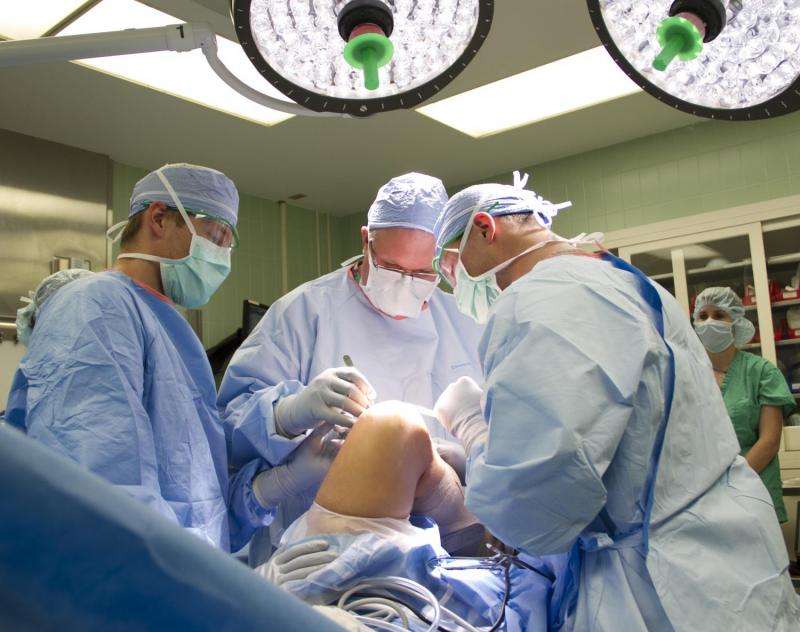Surgeons at The Ohio State University Wexner Medical Center implant lab-grown cartilage into Taylor Landgraf`s damaged knee. Weeks ago, doctors harvested cartilage cells from a healthy part of Landgraf`s knee and sent those cells to a lab where they grew into new tissue the size of a quarter. Surgeons then re-implanted the new cartilage in Landgraf`s knee to try and repair damage to his meniscus that he sustained during a recent fall. Credit: The Ohio State University Wexner Medical Center
Doctors at The Ohio State University Wexner Medical Center are the first in Ohio to use a tissue implant made from a patient's own cells to treat knee cartilage damage. Healthy cartilage is crucial to the smooth and painless mobility of most joints, and has limited capacity to repair itself after injury.
"Despite the availability of procedures and treatments, patients are often left searching for new options due to incomplete recovery or limited duration of effect," said Dr. David Flanigan, the surgeon who implanted the cartilage and associate professor of orthopedics at Ohio State's Wexner Medical Center. "If this implant works how we think it will, this could be a long-term, permanent solution for patients with these injuries."
To generate the implant, a surgeon first obtains a small sample of normal cartilage from a patient's knee through a minimally invasive knee scope. The tissue sample is then treated and grown into a cartilage implant, which is returned to the injury site.
In an effort to gain regulatory approval, the Neocart cartilage tissue implant is currently in an FDA-approved multi-center, randomized trial comparing the implant to the current standard-of-care for patients with articular cartilage defects of the knee.
Traditionally, microfracture surgery is considered the current standard of care for most cases of severe cartilage injury in the knee. Although symptoms may improve for a period of time after surgery, microfracture doesn't create the same healthy joint cartilage required to withstand normal forces of movement.
"The hope is that embedding patients with their own cells will lead to a more durable replacement of the lost cartilage and improve patient outcomes," Flanigan said.
The Neocart implant is made by Histogenics, which is sponsoring the clinical trial. Ohio State's Wexner Medical Center is one of approximately 30 trial sites nationwide.
Provided by Ohio State University Medical Center





















